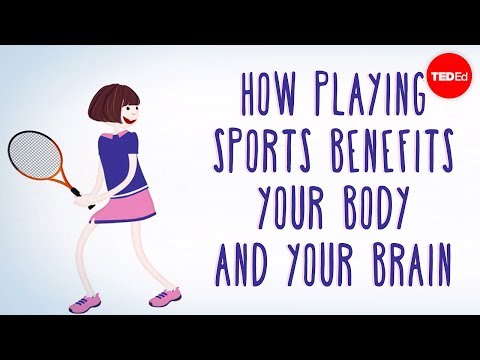How to Stop Sports Gambling Addiction?
Contents
If you or someone you know has a gambling problem, call 1-800-GAMBLER.
Checkout this video:
Introduction
Gambling addiction is a serious problem that can have devastating consequences. If you or someone you know has a gambling problem, it is important to seek help.
There are many organizations and resources that can help those struggling with a gambling addiction. This guide will provide some information on how to stop sports gambling addiction and where to seek help.
What is Sports Gambling Addiction?
Sports gambling addiction is a very real and serious problem that can have devastating consequences. It is characterized by an inability to control one’s urge to gamble on sporting events, despite the negative impact it may have on one’s life.
Gambling addiction is a serious mental health disorder that can destroy lives and tear families apart. If you or someone you know has a gambling problem, there is help available. Treatment for gambling addiction can be difficult, but it is possible to recover and lead a healthy, fulfilling life without gambling.
Causes of Sports Gambling Addiction
The causes of sports gambling addiction are not fully understood, but there are several risk factors that may contribute to the development of this disorder. Some of these include:
-A family history of gambling addiction or other substance use disorders
-A personal history of gambling addiction or other substance use disorders
-Psychological factors such as impulsivity, low self-esteem, and a need for excitement
-Biological factors such as a higher than average level of dopamine in the brain
-Exposure to gambling activities at an early age
-Peer pressure to gamble
-Easy access to gambling opportunities
Symptoms of Sports Gambling Addiction
The first step in overcoming a gambling addiction is to recognize the problem. It can be difficult to do this on your own, but there are some signs and symptoms that may indicate that you or someone you know has a gambling problem:
-Preoccupation with gambling, such as thinking about it all the time or planning your next gamble
-Needing to gamble with increasing amounts of money to get the same feeling of excitement
-Restlessness or irritability when trying to cut down or stop gambling
-Chasing losses by gambling more after a losing streak in an attempt to win back the money lost
-Lying about gambling activities or hiding it from others
– sacrificing hobbies, work, or school in order to gamble
-Gambling despite financial, legal, or relationship problems it may cause
How to Stop Sports Gambling Addiction
Gambling addiction can be a very destructive force in someone’s life. It can ruin relationships, cause financial problems, and lead to criminal activity. If you or someone you know is struggling with a gambling addiction, it’s important to get help as soon as possible. In this article, we’ll give you some tips on how to stop sports gambling addiction.
Step 1: Acknowledge that you have a problem
The first step to overcoming any addiction is to acknowledge that you have a problem. This can be difficult for many people, as admitting that you have a gambling addiction can be embarrassing and can feel like admitting defeat. However, it is important to remember that addiction is a disease, and it is nothing to be ashamed of. Once you have acknowledged that you have a problem, you can begin to take steps to overcome it.
Step 2: Talk to someone
The second step to overcoming gambling addiction is to talk to someone about it. This could be a friend, family member, therapist, or anyone else who you feel comfortable talking to. It is important to have someone to talk to who understands what you are going through and can offer support and advice. Talking about your addiction will also help you to better understand it and may give you some insight into why you gamble.
Step 3: Make a plan
The third step is to make a plan for overcoming your gambling addiction. This may involve setting limits on how much money you gamble, only gambling with certain amounts of money, or avoiding gambling altogether. It is important that your plan is something that you are comfortable with and that you feel will work for you. You may also want to consider attending Gamblers Anonymous meetings or therapy as part of your plan.
Step 4: Take action
The fourth step is taking action on your plan. This means following through with what you have decided and making changes in your life accordingly. This can be difficult, but it is important to stick with your plan and make the necessary changes if you want to overcome your gambling addiction. Remember that relapse is always possible, but if you take action and stick with your plan, recovery is possible.
Step 2: Understand why you gamble
Before you can start to change your gambling habits, it’s important to understand why you gamble. For some people, gambling is a way to cope with stress or other negative emotions. Others may gamble as a way to escape from problems or boredom in their life.
Some people gamble for the thrill of winning money, while others may gamble to try and make up for previous losses. Whatever your reasons for gambling, it’s important to be honest with yourself so that you can find ways to address the root cause of your problem.
Step 3: Make a plan to stop gambling
Now that you’ve decided to quit gambling, it’s time to make a plan to help you stick to your resolution. A good place to start is by understanding your triggers—those things that make you want to gamble. Once you know your triggers, you can develop strategies to avoid them.
Here are some other things to keep in mind as you make your plan:
-Set a specific date when you will stop gambling.
-Make a list of all the reasons why you want to quit gambling.
-Tell your family and friends about your decision to quit gambling.
-Avoid places and activities that trigger your urge to gamble.
-Find new hobbies and interests to fill your time.
-Get help if you feel like you can’t stick to your plan.”
Step 4: Seek professional help
If you’re struggling to quit gambling on your own, it may be time to seek professional help. There are many counseling and rehabilitation programs available to help people with gambling addiction.
These programs can provide you with the support and tools you need to overcoming your addiction. They can also help you deal with any underlying mental health issues that may be contributing to your addiction.
If you’re not sure where to start, you can contact a local gambling addiction hotline for more information on counseling and rehab programs in your area.
Step 5: Join a support group
Gambling addiction is a serious issue that can destroy lives. If you or someone you know has a gambling problem, it’s important to get help. Gambling addiction is a treatable condition, but it’s important to seek professional help as soon as possible.
There are many different types of support groups for gambling addiction, including Gamblers Anonymous, Gam-Anon, and Gam-A-Teen. These groups provide support and resources for people struggling with gambling addiction. Joining a support group is an important step in recovery from gambling addiction.
Conclusion
If you or someone you know has a gambling problem, there are help and resources available. National Problem Gambling Helpline at 1-800-522-4700 is a free and confidential service that provides counseling and referrals to local resources for problem gamblers and their families. If you live in New Jersey, Pennsylvania, or Delaware,Gamblers Anonymousis also available to help by providing weekly meetings and support.







